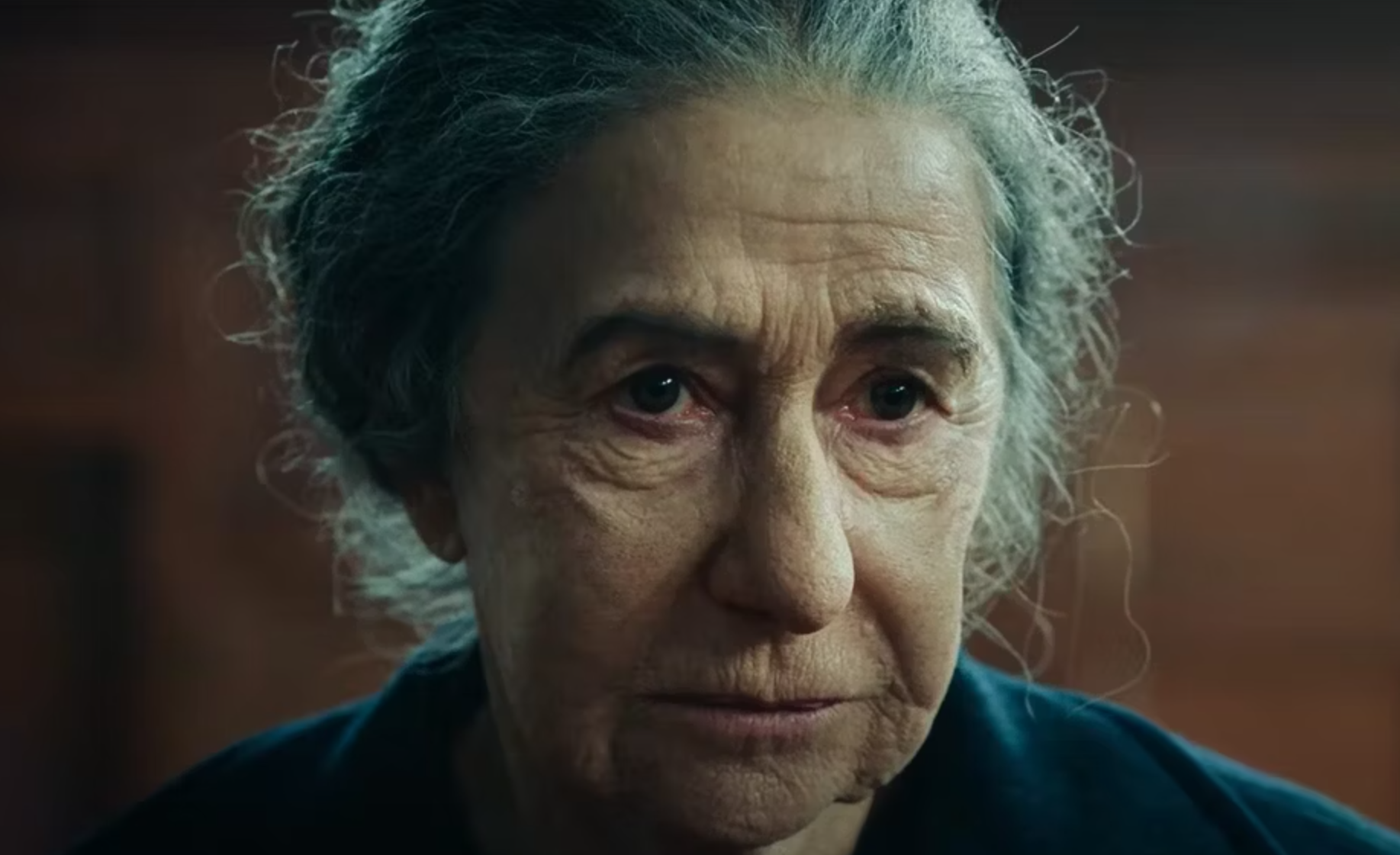Golda: A failed attempt to boost Israel's propaganda

I had very low expectations going into Golda, the movie about Israel’s former prime minister who secured her country’s victory over the Egyptian and Syrian armies in 1973.
The Hollywood Reporter described the movie as a biopic showing Israel’s only female head of state as a “surprisingly effective military leader” and a savvy diplomat. Obviously, director Guy Nattiv was not going to show us much of the “human” behind the legend - or only those human traits that could make her more of a legend. But with potentially renewed interest in this historic person, this would be a good time to separate myth from reality.
The myth: Golda Meir is a feminist icon in the United States. She served as Israel’s fourth prime minister from 1969 to 1974, when she was voted in a Gallup poll as the “most admired woman” in the US, above then-First Lady Betty Ford, with Pat Nixon, wife of former President Richard Nixon, in third place.
The Israeli leader was - white, second-wave, liberal Zionist - American feminism’s poster girl, the face above the caption “But can she type?” in a poster campaign criticising gender stereotypes in the workplace.
To Palestinians, of course, she is despised as the woman who said “there was no such thing as Palestinians” and suggested that Arabs hated Jews more than they loved their children, among numerous other offensive statements.
New MEE newsletter: Jerusalem Dispatch
Sign up to get the latest insights and analysis on Israel-Palestine, alongside Turkey Unpacked and other MEE newsletters
Few of the people who like to resurface Meir’s denial of our existence are actually aware of the larger context of that statement, namely how deeply grounded it is in the Eurocentric, imperial worldview that a people do not comprise a rightful nation in the absence of the trappings of the modern European nation-state.
Meir, then, was not denying that we existed as humans, but rather, that we had rights as Palestinians, because Palestine, the historic nation, was not an independent state as recognised by European standards.
“When was there an independent Palestinian people with a Palestinian state?” she said. “It was either southern Syria before the First World War, and then it was a Palestine including Jordan. It was not as though there was a Palestinian people in Palestine considering itself as a Palestinian people and we came and threw them out and took their country away from them. They did not exist.”
Colonial mindset
This, of course, is the same mindset that saw the Indigenous peoples of Turtle Island deprived of their rights to sovereignty, because they did not have arbitrary borders and a political system recognised by European conquerors. Zionism hinges on this colonial mindset, which was officially articulated again this year by Israeli Finance Minister Bezalel Smotrich, who also said that Palestinian history, and the Palestinian nation, do not exist.
Any look at the literature from the days Meir references proves her wrong: The newspaper Falastin was founded in the early 1900s, and the currency from that time is stamped “Palestine”, not “southern Syria”.
This is not quite the heroic, larger-than-life ethical leader with whom the director and producers surely wanted to impress us
Israelis seem more sober about this controversial woman. The Shalvi/Hyman Encyclopedia of Jewish Women notes: “She was, in current parlance, a ‘queen bee,’ a woman who climbs to the top, then pulls the ladder up behind her. She did not wield the prerogatives of power to address women’s special needs, to promote other women, or to advance women’s status in the public sphere. The fact is that, at the end of her tenure, her Israeli sisters were no better off than they had been before she took office.”
Early reviews of Golda were sobering, to say the least. Bad Movie Reviews, a YouTube channel dedicated to reviewing bad films, described it in terms such as “dull”, “subdued” and “one-dimensional”.
The film “only scratches the surface”, according to the Washington Post. Indeed, we are never told why Egypt and Syria attacked Israel on 6 October 1973. It was to regain the Sinai Peninsula and the Golan Heights, respectively, both of which Israel had illegally occupied since 1967.
Instead, we hear Meir warning of the threat to Israel “if the Syrians conquer the Golan Heights”. But an army regaining illegally occupied land is not “conquering” that land; it is liberating it.
Offensive fabrications
Meir is played by Helen Mirren, whose talent is “lost in a whirl of smoke”, according to a review published in the Detroit News, which calls the film “irritating” and “ham-fisted”. Indeed, the focus is on Israel “defending itself”, a supposed “right” we are endlessly reminded of by our politicians, when in reality no country has a “right” to defend an illegal occupation - instead, it has a legal obligation to end that occupation.
Even the Los Angeles Times, a newspaper with a distinct Zionist bent, called the movie “lackluster”, while praising Mirren’s performance as “the best and perhaps only interesting thing about it”. Oddly, the newspaper notes that while actor Bradley Cooper fuelled controversy by wearing a prosthetic nose to portray another famous Jewish historical character, Leonard Bernstein, “the ‘should only Jews play Jews?’ debate won’t be revived here” - even though Mirren, too, wears a prosthetic nose (and fat suit) to portray her on-screen character.
Apparently, these reviewers, like me, were not swayed by the promotional hype around the movie. Whatever Golda was meant to deliver, we did not get it.
And that’s good. Because my concern was that the movie would be so successful that it would boost Israel’s image, adding to Zionist hasbara at a time when the country badly needs it. And the Zionist narrative certainly permeates the movie thoroughly: “This is 1948 all over again,” Meir says, as if it was Israel, rather than Palestine, coming under attack in 1948.
Meir also claims that the “Arabs” (referring to Egyptians and Syrians; Palestinians are not mentioned once in the film) don’t mourn their dead, whereas the death of every Jewish soldier killed in battle weighs heavily on her soul. Other such offensive Zionist fabrications pepper the movie.
But the overall effect of the film is quite the opposite. We see a country willing to engage its nuclear power to retain illegally seized land, and a manipulative politician willing to wring weapons from the US, even when that country seems reluctant to offer them unconditionally. This is not quite the heroic, larger-than-life ethical leader with whom the director and producers surely wanted to impress us.
Ultimately, while it was no doubt meant to buoy Israel’s propaganda, Golda sinks it.
The views expressed in this article belong to the author and do not necessarily reflect the editorial policy of Middle East Eye.
Middle East Eye delivers independent and unrivalled coverage and analysis of the Middle East, North Africa and beyond. To learn more about republishing this content and the associated fees, please fill out this form. More about MEE can be found here.






